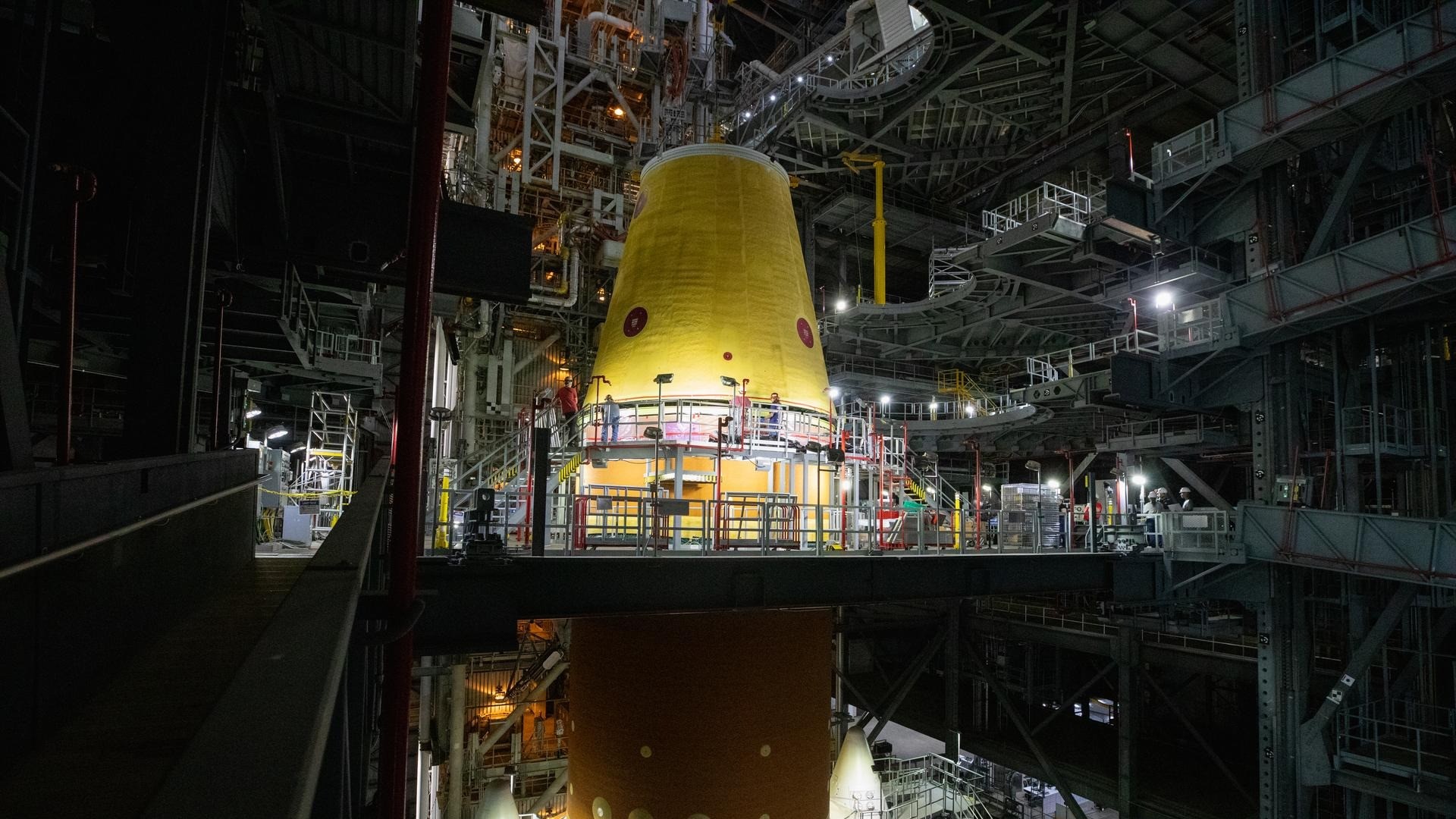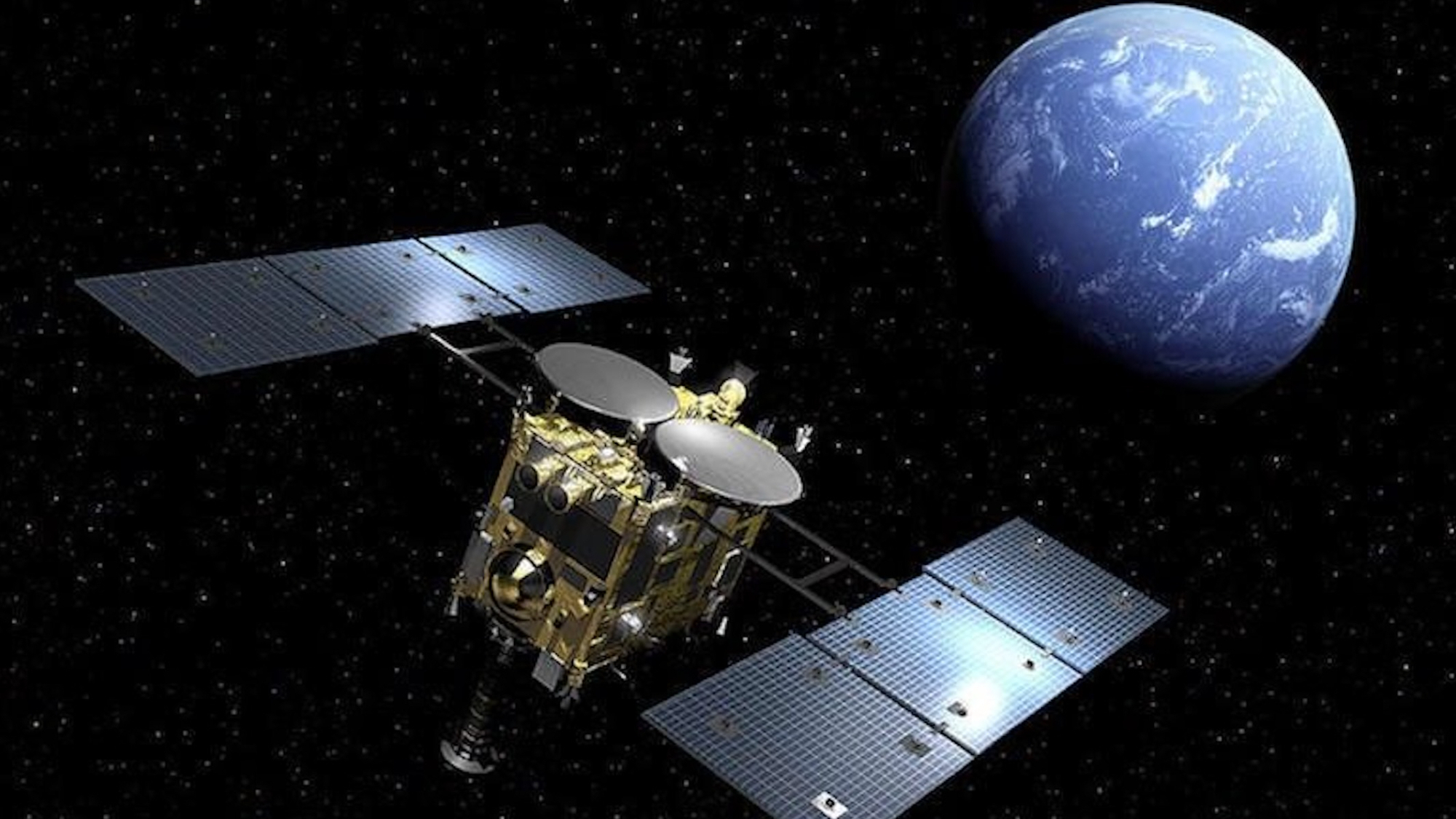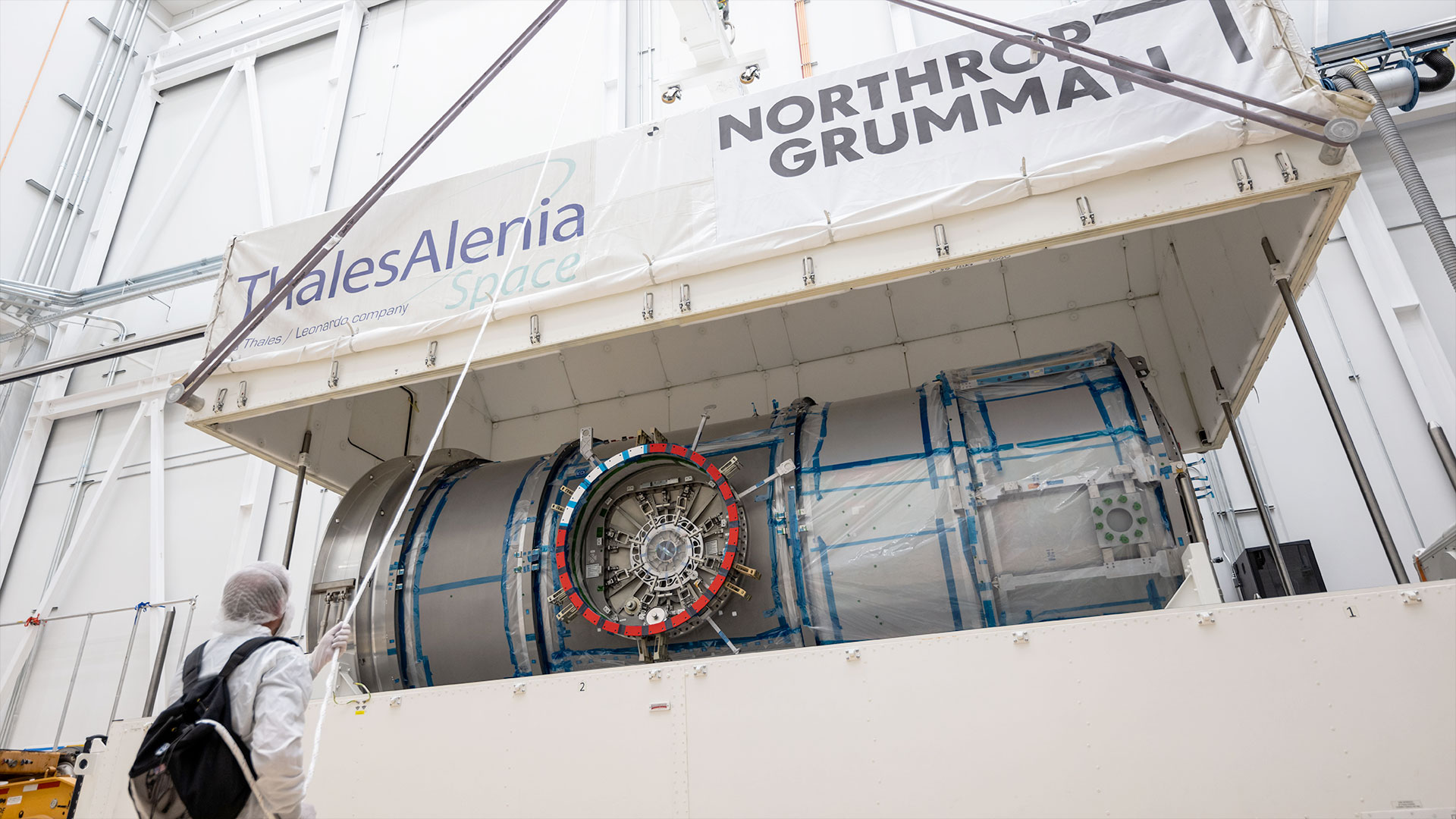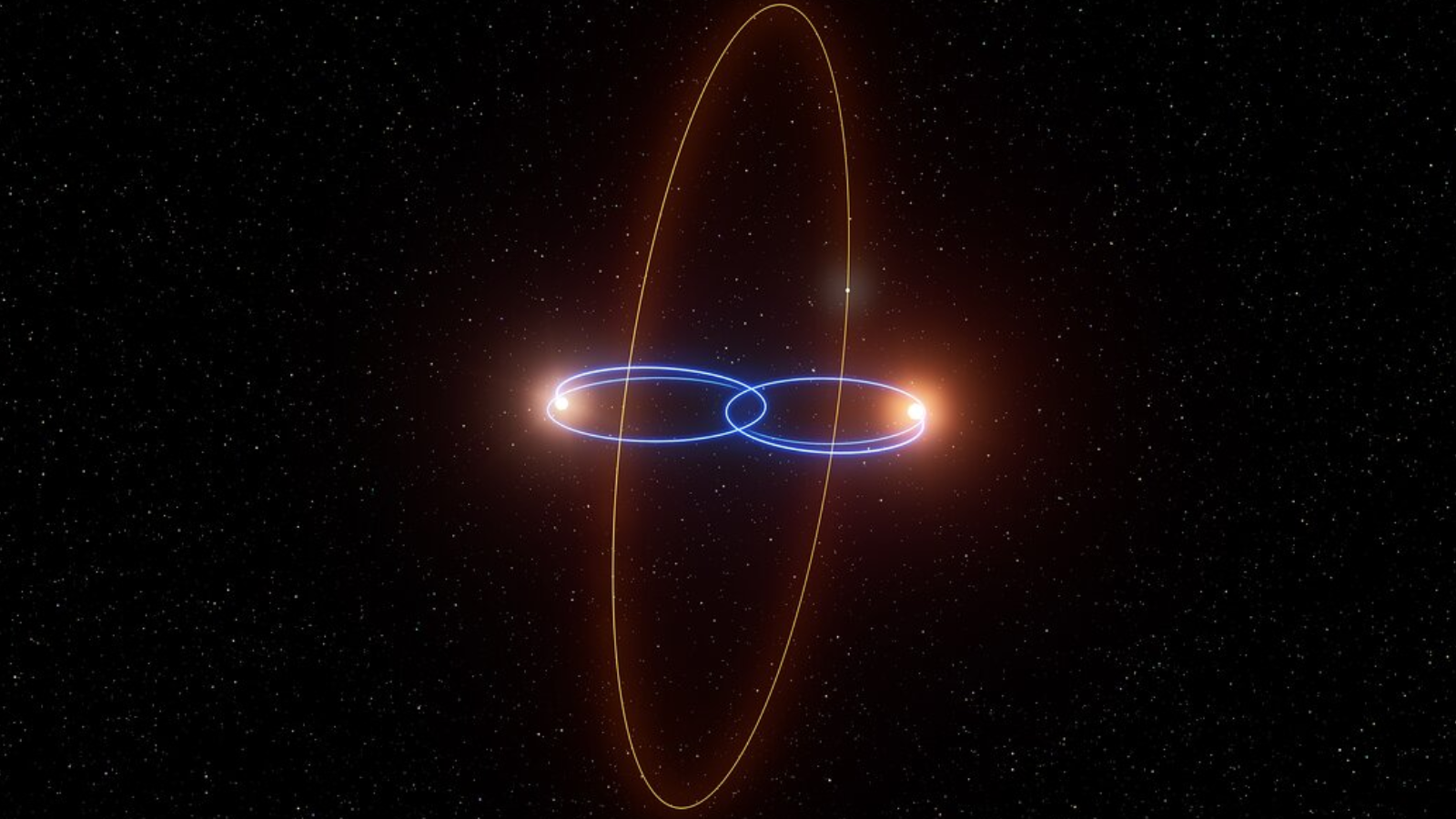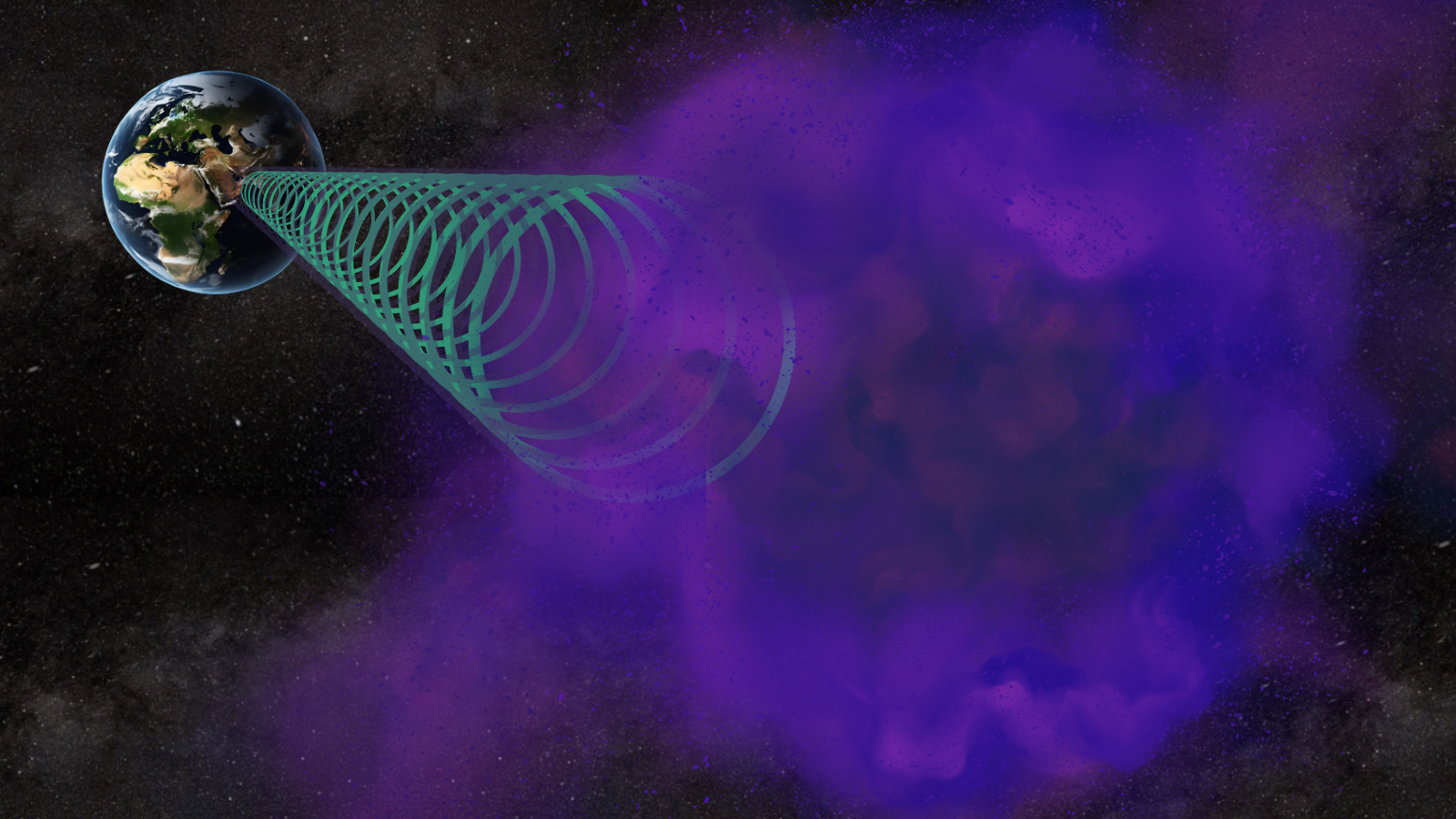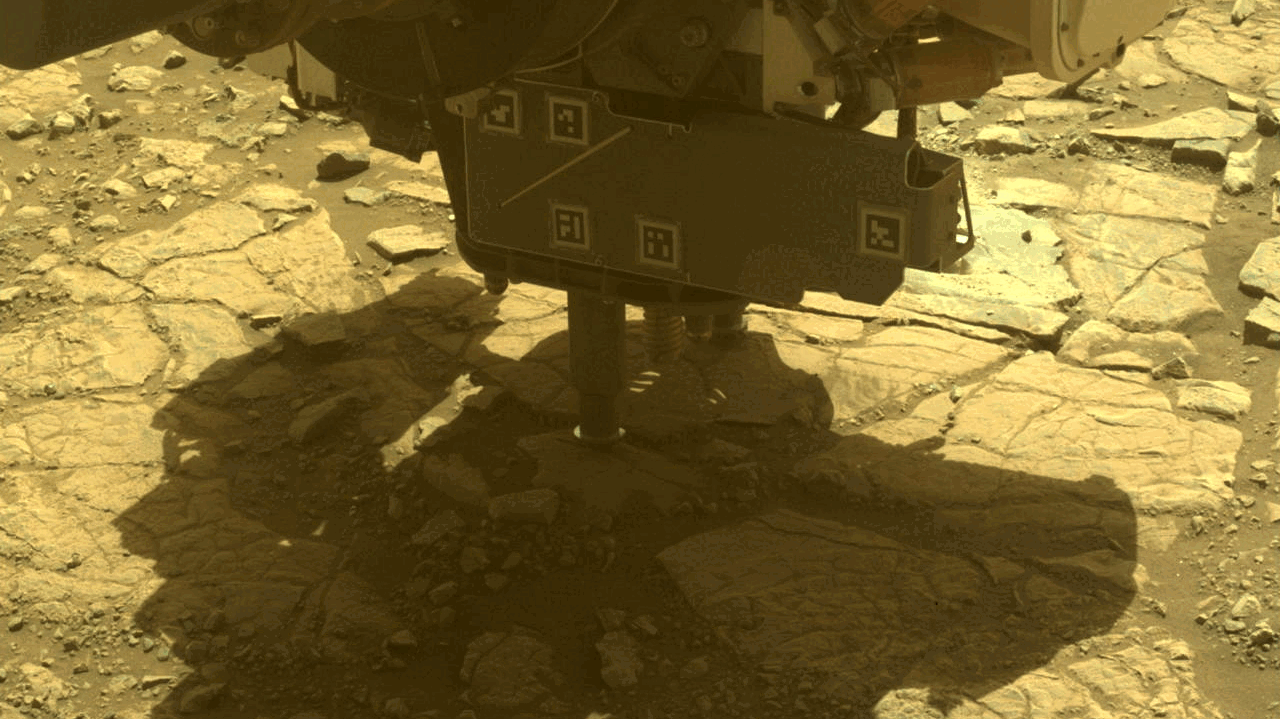Russian Spacecraft Spinning Out of Control in Orbit, with Salvage Bid Underway
Update for April 29: Russia's space agency has confirmed that Progress 59 is falling from space and will burn up in Earth's atmosphere. Read the full story: Doomed Russian Space Station Cargo Ship Will Fall Back to Earth Soon
The Russian space agency Roscosmos is scrambling to regain control of a robotic Progress 59 cargo ship that appears to have suffered a serious malfunction shortly after launching into orbit early today (April 28).
Video from the Progress 59 spacecraft showed it in a dizzying spin, with the Earth and sun rapidly coming into and then out of frame. Russian flight controllers abandoned plans to attempt to dock the cargo ship with the International Space Station on Thursday (April 30), NASA spokesman Rob Navias said in a NASA TV update. That docking — originally scheduled for this morning, then pushed to Thursday — is now "indefinitely postponed," Navias said.
The problems began shortly after Progress 59 launched into space atop a Russian Soyuz rocket from Baikonur Cosmodrome in Kazakhstan. Liftoff occurred at 3:09 a.m. EDT (0709 GMT), with the cargo ship packed with just over 3 tons of food, fuel and other supplies. [How Russia's Progress Spacecraft Work (Infographic)]
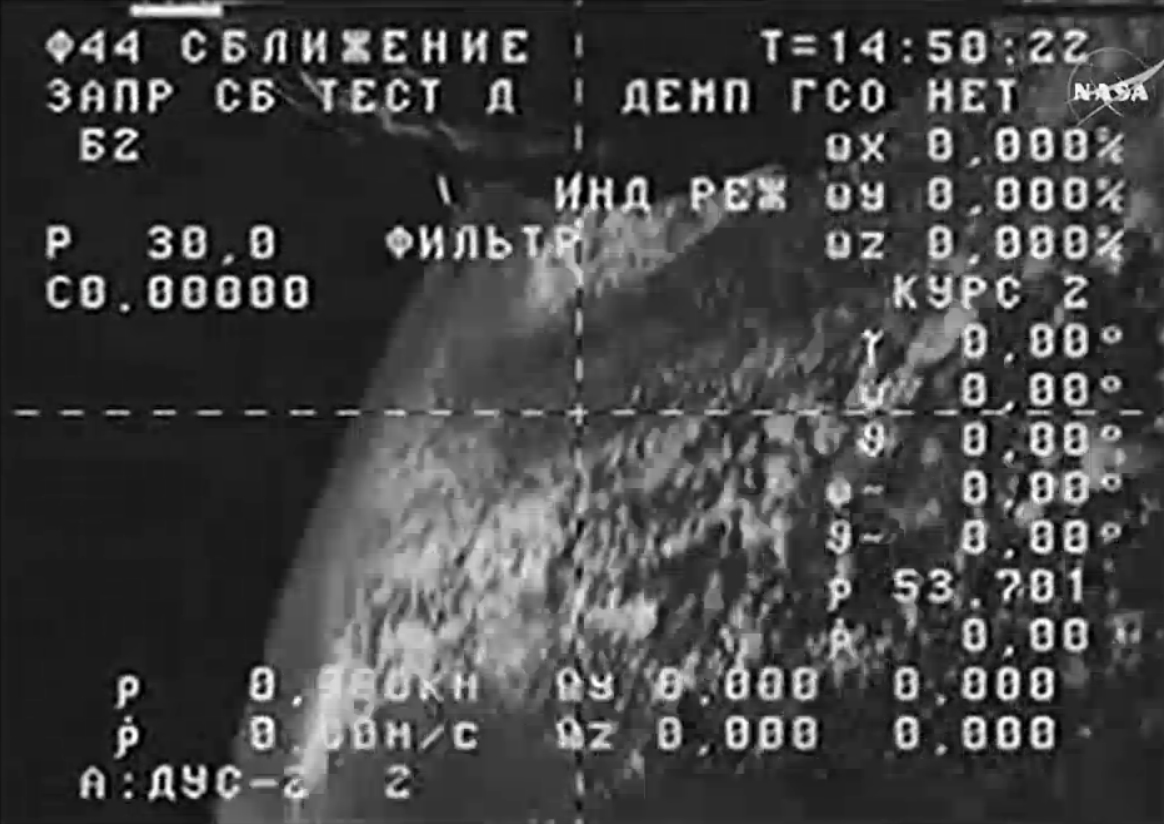

"Almost immediately after spacecraft separation, a series of telemetry problems were detected with the Progress 59," Navias said during a televised broadcast from NASA's Mission Control center at the Johnson Space Center in Houston. "No confirmation of navigational antenna deploy or of the pressurization of the manifold system for the propulsion system on the spacecraft was received."
Russian flight controllers attempted to regain control of Progress 59 as the spacecraft made four orbits around Earth, with no success. Late tonight, the spacecraft will make another series of passes over Russian ground stations, and flight controllers will resume their recovery work then, Navias said.
"The crew on board the International Space Station has pressed ahead with maintenance work today as well as biomedical experiment activities," he added. The station's current Expedition 43 crew includes three Russians, two Americans and one Italian astronaut.
Get the Space.com Newsletter
Breaking space news, the latest updates on rocket launches, skywatching events and more!
Russia's Progress spacecraft are disposable robotic cargo ships that have served as workhorse resupply vehicles for the International Space Station. They have been restocking the station since the first crews took up residence in 2000 and have a long track record of success. In August 2011, a launch malfunction led to the crash of the Progress 44 cargo ship.
Progress vehicles are equipped with a Kurs automated navigation system that allows them to make autonomous dockings with the space station. A backup system, called the Telerobotically Operated Rendezvous Unit, allows cosmonauts on the station to take manual remote control in the event of a Kurs system failure.
Progress spacecraft have a similar three-module appearance to Russia's manned Soyuz space capsules. Instead of a crew capsule, Progress vehicles carry a tanker module filled with propellant for use in reboosting the space station's orbit.
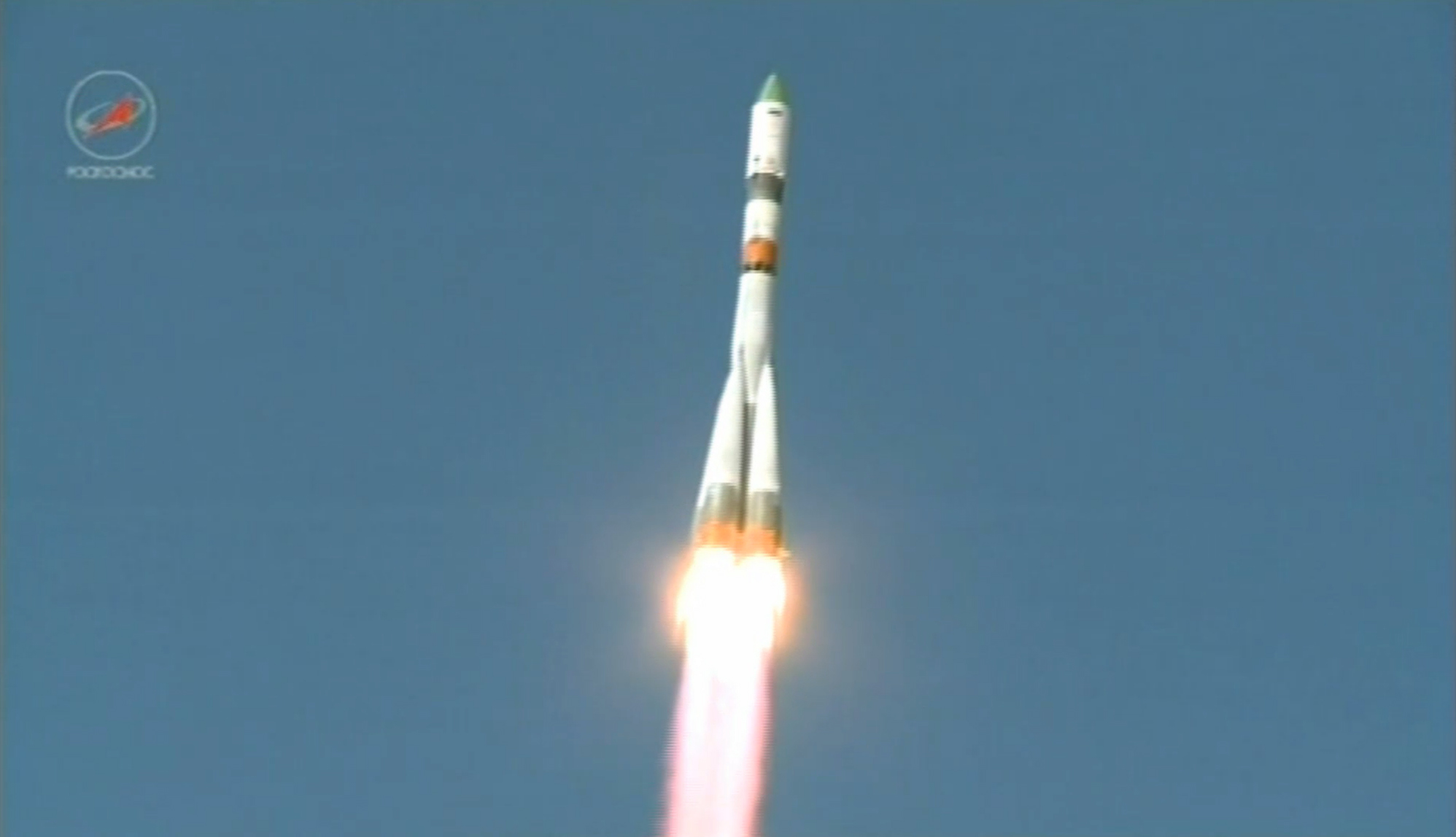
Russia's Progress vehicles are part of a fleet of robotic spacecraft that routinely deliver supplies to the International Space Station. Robotic ships from Japan and Europe have made supply runs, as well as commercial spacecraft built by the U.S. companies SpaceX and Orbital Sciences Corp., which fly delivery missions for NASA.
The most recent cargo ship to visit the space station was the unmanned SpaceX Dragon capsule, which launched on April 14 and arrived at the orbiting lab on April 17.
Space.com Staff Writer Calla Cofield contributed to this report. Email Tariq Malik at tmalik@space.com or follow him @tariqjmalik and Google+. Follow us @Spacedotcom, Facebook and Google+. Original article on Space.com.
Join our Space Forums to keep talking space on the latest missions, night sky and more! And if you have a news tip, correction or comment, let us know at: community@space.com.

Tariq is the Editor-in-Chief of Space.com and joined the team in 2001, first as an intern and staff writer, and later as an editor. He covers human spaceflight, exploration and space science, as well as skywatching and entertainment. He became Space.com's Managing Editor in 2009 and Editor-in-Chief in 2019. Before joining Space.com, Tariq was a staff reporter for The Los Angeles Times covering education and city beats in La Habra, Fullerton and Huntington Beach. In October 2022, Tariq received the Harry Kolcum Award for excellence in space reporting from the National Space Club Florida Committee. He is also an Eagle Scout (yes, he has the Space Exploration merit badge) and went to Space Camp four times as a kid and a fifth time as an adult. He has journalism degrees from the University of Southern California and New York University. You can find Tariq at Space.com and as the co-host to the This Week In Space podcast with space historian Rod Pyle on the TWiT network. To see his latest project, you can follow Tariq on Twitter @tariqjmalik.



